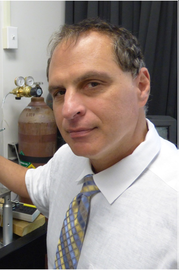
The Shapiro lab studies the physiology and modulation of voltage-gated K+ and Ca2+ channels in neurons, cardiomyocytes, smooth muscle and non-excitable cells.
The lab focuses on voltage-gated “M-type” (KCNQ) K+, Ca2+, and TrpV sensory channels and signaling pathways of Gq/11-coupled receptors, using patch-clamp electrophysiology of native neurons, myoctyes and heterologous systems, biochemistry, various types of cutting-edge imaging, molecular biology and live single-cell and whole-animal imaging.
The Shapiro lab’s major publications have shown the PIP2 sensitivity of both types of channels, the mechanisms and structural determinants of receptor-mediated suppression of IM and ICa, the modulation of KCNQ channels by calmodulin, A-kinase anchoring proteins (AKAPs) and Src kinase, the roles of M channels during ischemia/hypoxia or epileptic seizures in rain, in airway smooth muscle, and in sensory neurons.
The lab also seeks to systematically explore the role of AKAP79/150 in orchestrating transcriptional and regulatory control of M/KCNQ channels in sympathetic and sensory neurons.
The lab’s newest thrusts are to use STORM super-resolution nanoscopy to probe the multi-protein complexes underlying modulation of ion channels in tissues throughout the body, to probe the role of M channels as a neuroprotective mechanism during ischemic stroke and traumatic brain injury, as an anti-epileptogenic mechanism against seizures developing into epilepsy.
Source: http://gsbs.uthscsa.edu/faculty/mark-s.-shapiro-ph.d